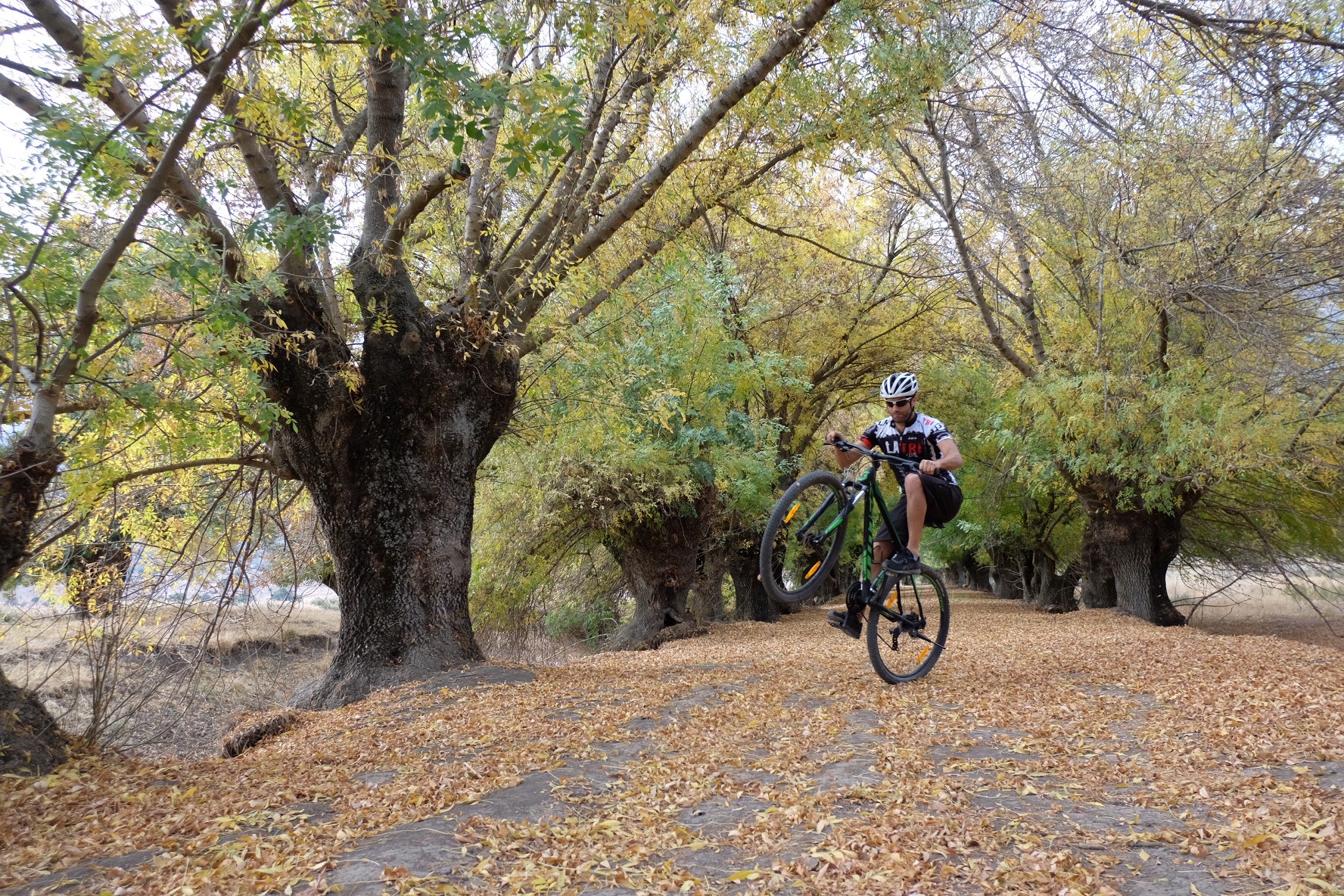Interview of the ambitious Lebanese entrepreneur and passionate cyclist, Karim Sokhn, founder of CyclingCircle, Deghri Messengers and The Bike Kitchen in Beirut
Interview of the ambitious Lebanese entrepreneur and passionate cyclist, Karim Sokhn, founder of CyclingCircle, Deghri Messengers and The Bike Kitchen in Beirut
Can you please introduce yourself and tell us a few words about your career history?
My name is Karim Sokhn, holding a BA in Social Work from University Saint-Joseph (Beirut). I worked as a social worker between 2008 and 2016, and currently working full time on CyclingCircle.
As a passionate cyclist, I always dreamed of Beirut to be a cycling-friendly city where bicycles would be the prime mode of transport. With the increasing problem of mobility in Lebanon and the vital need to switch to other alternatives, I started progressively developing cycling projects and services that would encourage people to start using bicycles in the city – thus I created CyclingCircle in 2012, Deghri Messengers in 2014 and The Bike Kitchen – Beirut in 2016.
Can you tell us more about these activities, and their development since their creation?
• Out of constant requests for organized bike tours, I created CyclingCircle in 2012. It first started as a touristic company that proposes urban and rural tours by bicycle. I believed that by focusing on the fun and healthy aspect of cycling, and by proposing organized cycling activities, people would be encouraged to use bicycles for leisure as a first step, and for mobility at a later stage. Following a 2-year experience, I pivoted CyclingCircle to become a company that works to improve urban mobility and encourage rural tourism by bicycle in Lebanon, thus the following projects emerged.
• In 2014, I decided to tackle seriously the mobility and transport sector by launching my second start-up Deghri Messengers with the aim to introduce and prove that bicycles are reliable, safe and fast, and can replace motorized vehicles when it comes to transporting small to medium-sized packages in the metropolitan and city’s suburbs. In January 2016, I met the Diane Foundation who invests in green business, and who was particularly interested in Deghri Messengers and its expansion. Accordingly, Deghri Messengers SAL became an independent entity from CyclingCircle SARL in August 2016 and focused to consolidate and expand its delivery service in Beirut. Though, Deghri Messengers ceased its activity because the time and cost required to deliver on the vision was more than the market is prepared to invest. Deghri Messengers was almost the same as UberEat and other delivery services: to deliver in a fast and eco-friendly manner. These services are not yet operating in Lebanon and it will be difficult for them due to the constant lack of bike messengers. However, Deghri Messengers is in a pause mode currently and will see the light in a couple of years hopefully.
• Finally, in 2017, I launched The Bike Kitchen – Beirut, which is a bike shop that provides friendly, honest and professional cycling services, as well as a place that teaches people the proper and safe way to ride bicycles and commute by bike in the city. I also launched 2 bike stations that provide bike rental services in touristic rural areas: Aammiq and Bkassine.
• As of 2018, I will be working with private schools to implement cycling courses that will raise awareness and prepare young students to become the future bike generations.
What is your point of view on the use of bicycle in Beirut, and in Lebanon more generally?
The bicycle is used in general as a leisure and sports vehicle rather than a mean for transportation due to several facts: fear of getting hit by a car, worry about sweating by the time you reach work, difficulty to ride hilly roads, get exposed to pollution, laziness to actually try the experience of commuting by bike to work, etc.
We can actually notice many individuals riding bikes in the dense suburbs of Beirut, in well-known neighborhoods, in the metropolitan and in areas where you have a lot of educational institutions.
Beirut is a small capital that can be crossed in about 45 minutes by bicycle, but there is actually nothing attractive that could be done to encourage people to ride bicycles in the city. I think that you need to start form the bottom of the pyramid: 1-) education especially kids, 2-) promotion and mass campaigns to use bicycles, 3-) and an increase in the use of bikes will make the government work on cycling infrastructures.
Another thing that would let people use bicycles is the increasing traffic that will eventually push people out of their cars to look for other alternatives despite the lack of infrastructure and health risks.
Though, I don’t have high hopes for the transport sector anytime soon – It will take many generations with fresh open minds who would genuinely and responsibly act to change the current dramatic situation of Beirut’s transport system.
In the meantime, which other modes of transport do you have in Beirut?
The lack of public transport, the absence of car/bike lanes and road signs, the lack of enforcement of traffic law and drivers’ reckless behavior makes Beirut’s transport system a chaotic one.
The solution is a combination of 4 major aspects: education and awareness, enforcement of the law, multiple transport alternatives and organized roads.
This interview has been realized in November 2017 in the frame of the Community of Practice on Sustainable Urban Transport (CoP). It is a project led by CODATU, AFD, CMI and the World Bank, with the aim of sharing knowledge between experts to encourage the development of solutions for an integrated and sustainable urban transport in Middle East and North Africa countries. Until January, the CoP is focusing on the specific thematic “Bike Share Services: a new challenge for Mediterranean cities”, and a webinar will be animated on the subject on November, Thursday 16.

